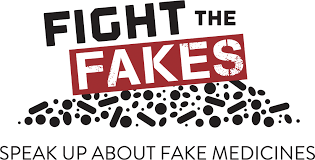+ 123 456 7890
Communication and Advocacy
Limited information is available about the public awareness of SSFFC medicines in countries with high rates of malaria transmission. While public awareness was low in the early 2000s, a 2010 Gallup poll found that the majority of the 17 sub-Saharan countries surveyed were aware that poor quality medicines were a problem, with awareness levels ranging from 25 percent of participants in South Africa to 83 percent in Sierra Leone and Nigeria and 91 percent in Cameroon.
A Message from Singula for the Campaign #LeMedicamentDeLaRueTue
 Fight the Fakes is an awareness-raising campaign created by 10 health partners. The project shares stories of those affected by SSFFC medicines, releases media alerts and houses resources for governments and policymakers, healthcare professionals, media and patients. Sign up to receive email updates from Fight the Fakes here.
Fight the Fakes is an awareness-raising campaign created by 10 health partners. The project shares stories of those affected by SSFFC medicines, releases media alerts and houses resources for governments and policymakers, healthcare professionals, media and patients. Sign up to receive email updates from Fight the Fakes here.
Sometimes organizations use entertainment to inform the public. For example, Interpol released a song called “Proud to Be,” by Yvonne Chaka Chaka and Youssou N’Dour warning listeners about bad medicines circulating, especially in sub-Saharan Africa. In September 2014, the Chirac Foundation released radio and television spots and a social media campaign to remind the African public that #MedicineFromTheStreetKills (#LeMedicamentDeLaRueTue). In these spots , celebrities and cultural figures advocate against SSFFC medicines and share messages like “At best, fake medicines will do nothing. At worst, they will kill you. Learn more by visiting the Chirac Foundation website.” The Chirac Foundation conducts additional advocacy activities to mobilize state government leaders around quality medicines, including work in Cotonou in 2009 and at the Ouagadougou Roundtable in 2011.

